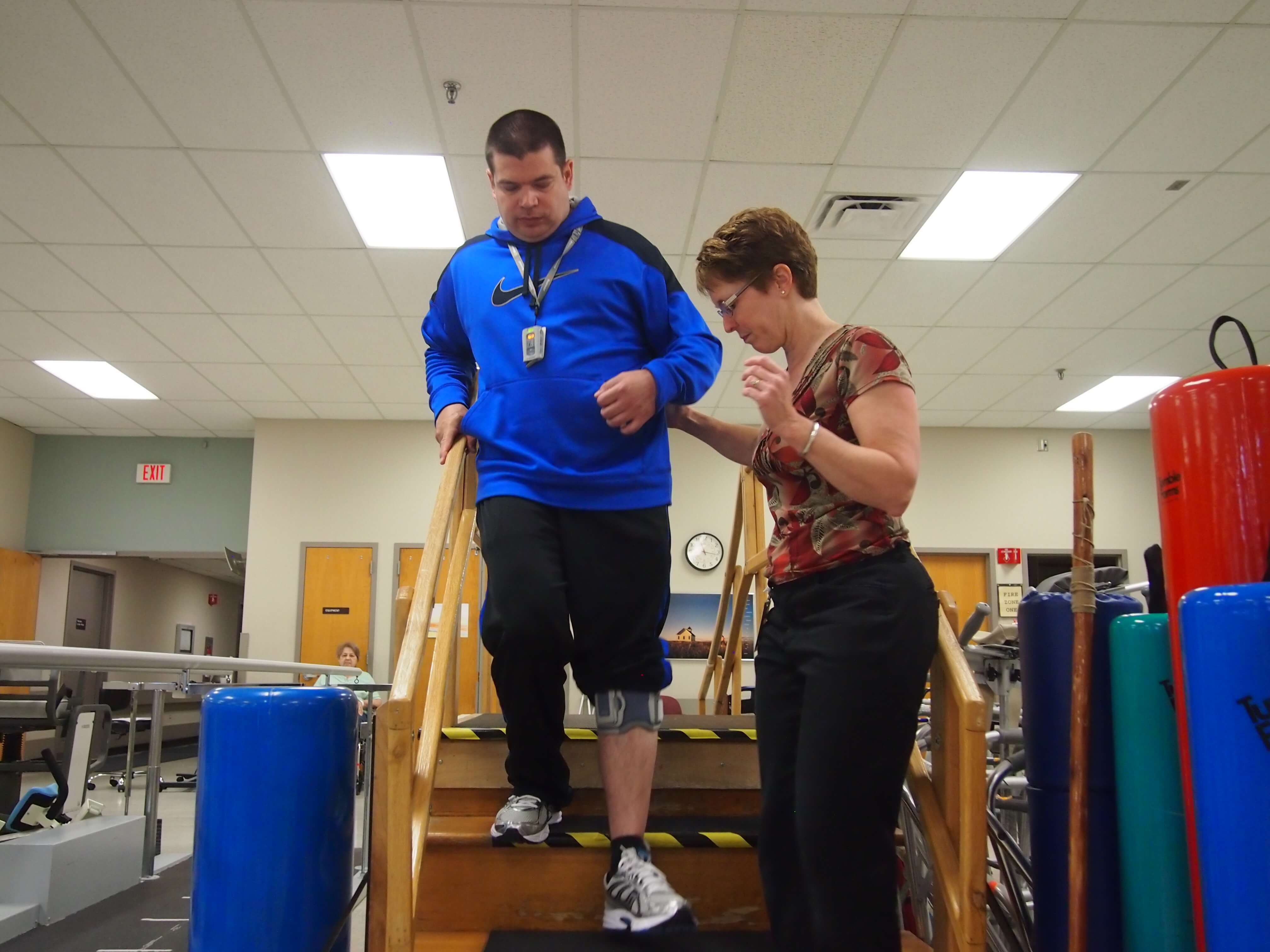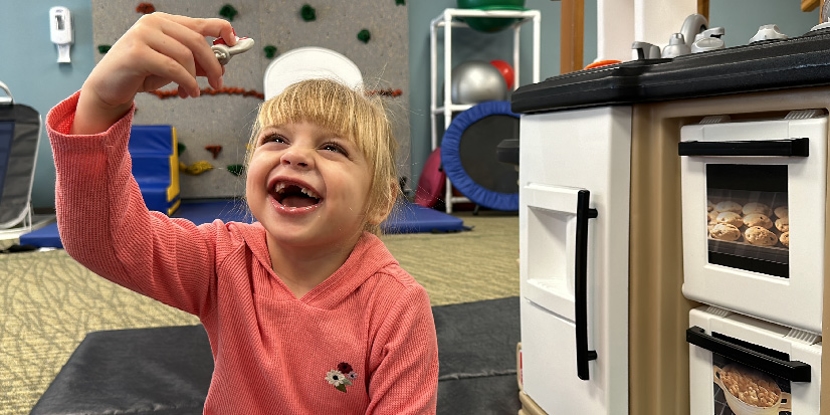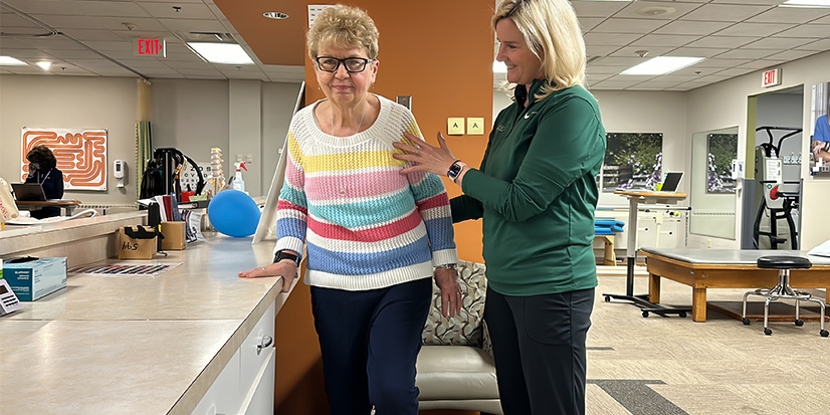James C.
- Author: James C.
- Date Submitted: Jun 6, 2014
- Category: Stroke


James C., of Jessup, Pa, suffered a stroke on February 16th, 2013. He is the father of twin boys Jacob and James and husband to Melissa. Almost all strokes are preventable, but in James’ case, it was discovered that a small hole in his heart was to blame. His doctors suggest that the hole in his heart may have caused a blood clot to break loose and travel to his brain, triggering the stroke.
On the day of his stroke, Melissa noticed that her husband was slurring his words and experiencing numbness. She immediately called for help. After being admitted to CMC, now Geisinger Community Medical Center in Scranton, he was life-flighted to Geisinger Medical Center in Danville where he spent two weeks in the Intensive Care Unit.
James was then moved to Allied Services Scranton Rehab Hospital where he began the long process of rehabilitation. During the next 6 weeks, he went through a rigorous course of physical, occupational, speech and recreational therapy designed to restore function to the left side of his body, which was paralyzed by the stroke.
At times, the process of rehabilitation seemed overwhelming, but James knew he was in good hands. Allied Services Scranton Rehab Hospital was recently ranked as the top rehab hospital in the country by the Uniform Data System for Medical Rehabilitation.
“When I was at Allied, it felt like family. They give you a boost every day and push you to keep going. They make you believe it’s possible.”
James’ faith and the support of his family, friends and “Allied family” were rewarded. In just six weeks, he was able to return home and began outpatient therapy at Allied Services in Scranton. It was then that he was introduced to a device that would give him newfound mobility and freedom.
The Bioness L300 Plus is a device designed to help patients walk by delivering electronic stimulation to the leg muscles. The system is used to control the way the knee bends and straightens, sensing and adapting to changes in walking speed and terrain. Using the device also reeducates the muscles, maintains range of motion and improves local blood circulation.
“I thought I would never walk again, but Allied gave me the ability to walk.”
“They gave me the proper tools, knowledge, and therapy to get me to my feet again.”
As James continues to break new barriers in his rehabilitation, he is also focused on educating his peers. He remembers how shocking it was to suffer a stroke and wants to make others aware of the risks and warning signs.
“Strokes are affecting a younger age group more and more, but it doesn’t have to be that way” said James. “80 percent of strokes are preventable.”
According to the National Stroke Association, stroke is the leading cause of adult disability and the fourth leading cause of death in the U.S. Over the past 20 years, the risk of stroke in adults between the ages of 24 and 60 has risen by 25%, due in large part to a rise in obesity, high blood pressure, high cholesterol, and diabetes among this age group. Warning signs of a stroke include a sudden change in vision or speech, numbness, and weakness or paralysis affecting one side of the body.
With the help of his family, friends and Allied Services, James has overcome many obstacles in recovery that at first seemed impossible. His continuing belief and determination will keep him striving for new goals, like returning to coaching for the Valley View Youth Wrestling program, enjoying time hunting and fishing with his sons and returning to his job as an Electronic Technician at the Tobyhanna Army Depot.



